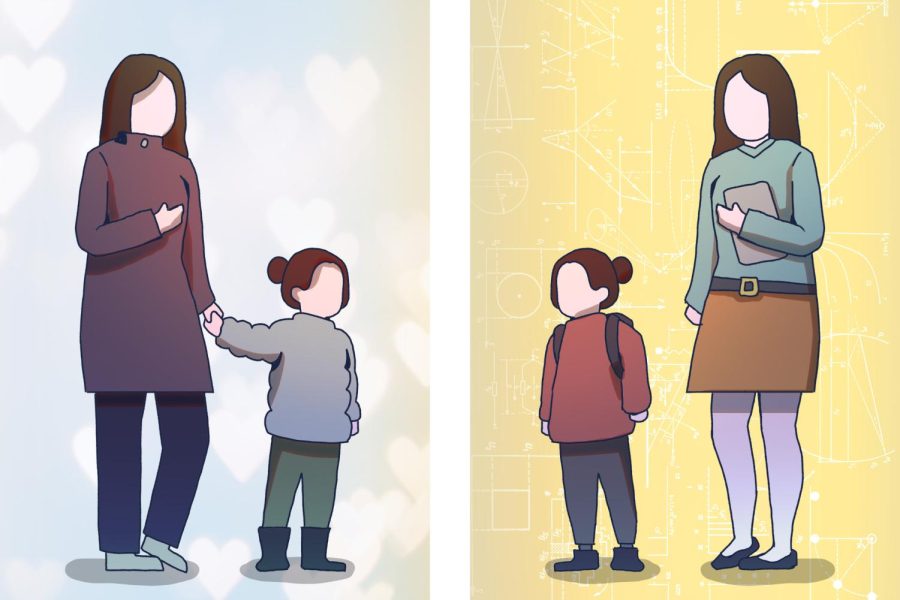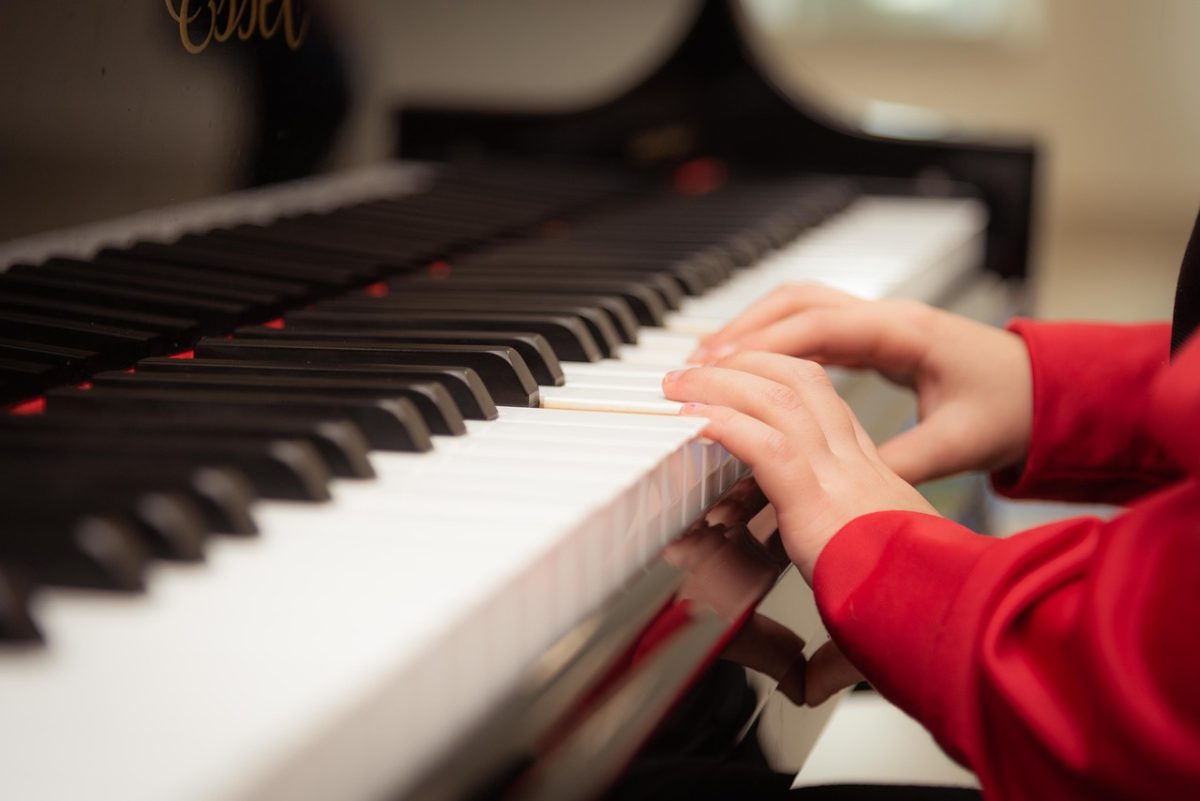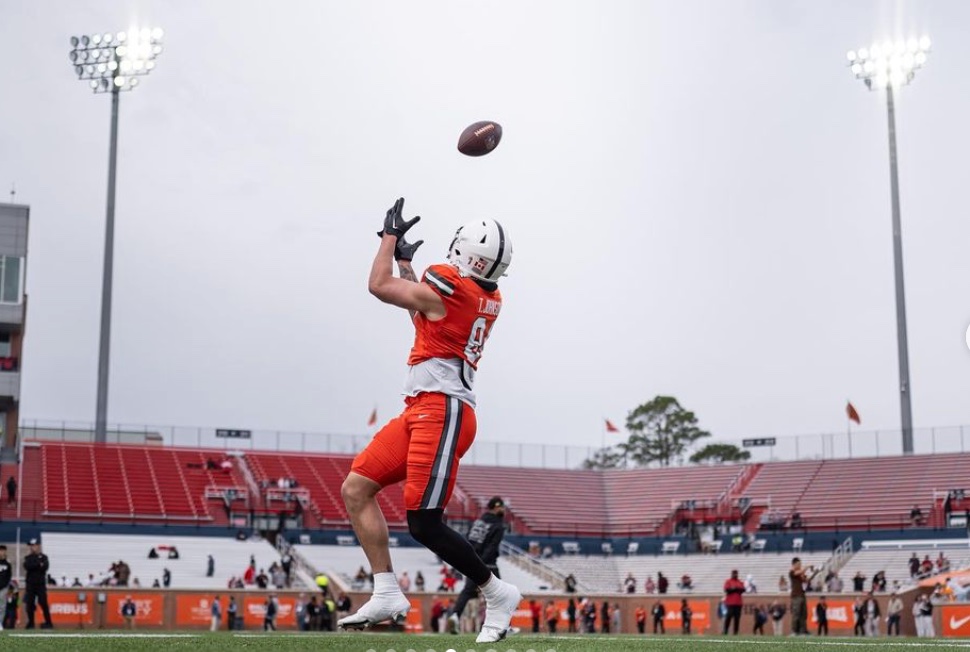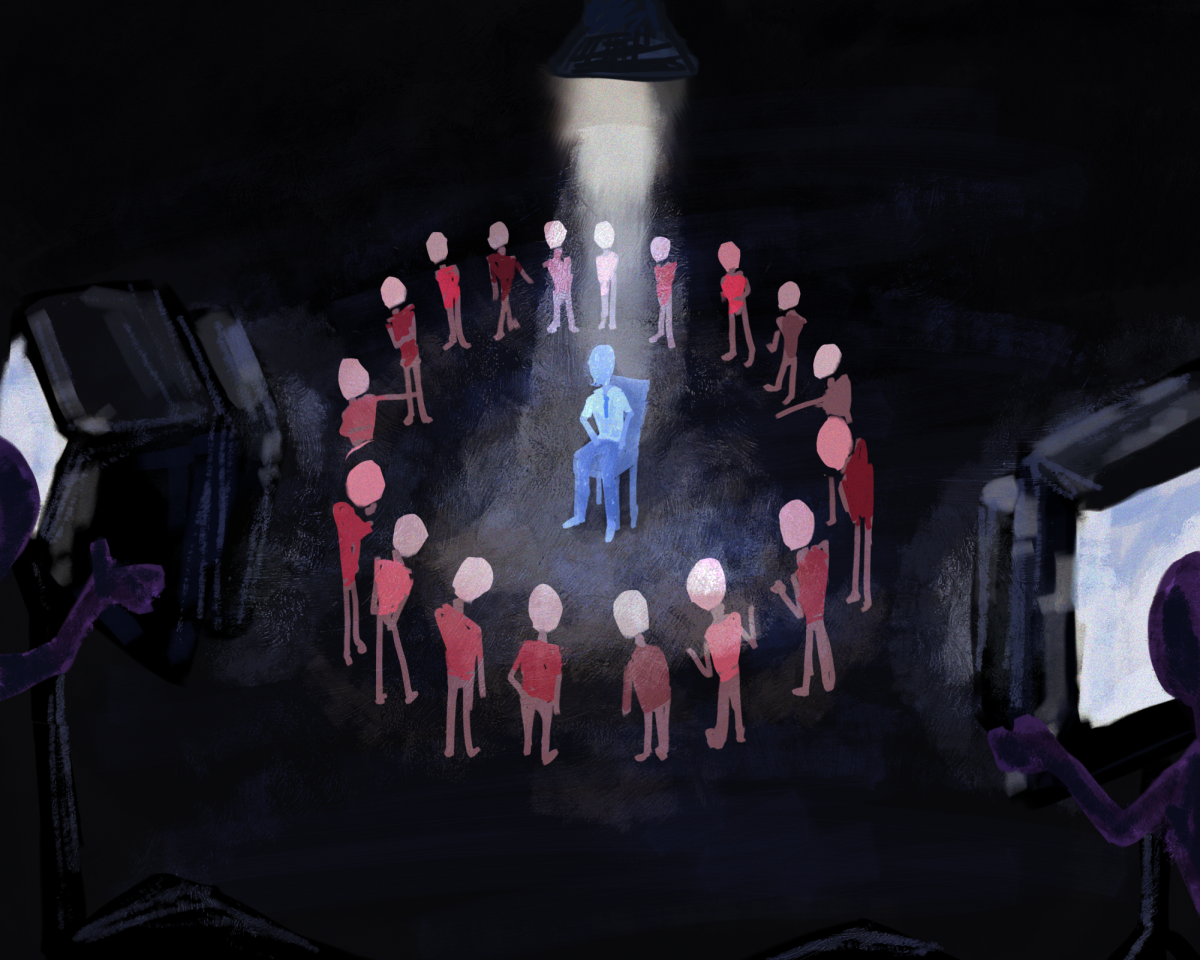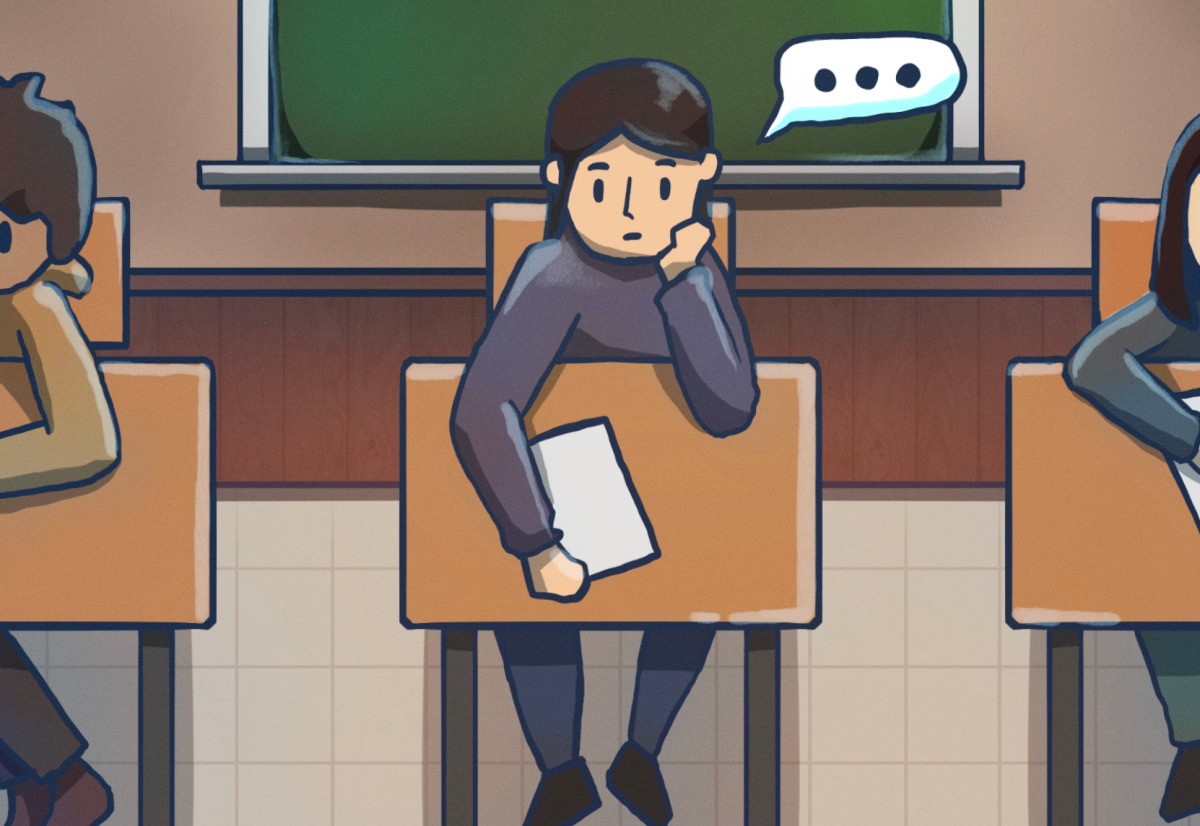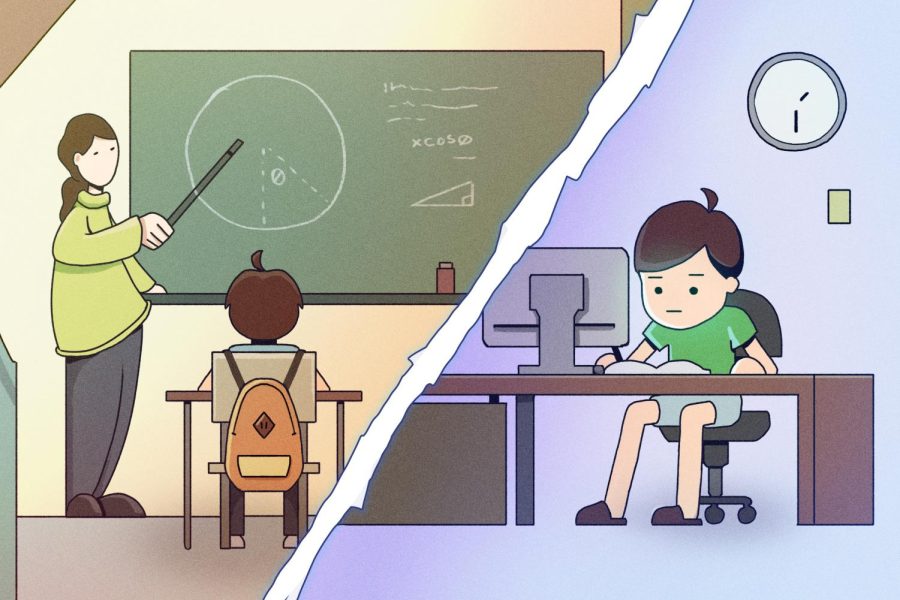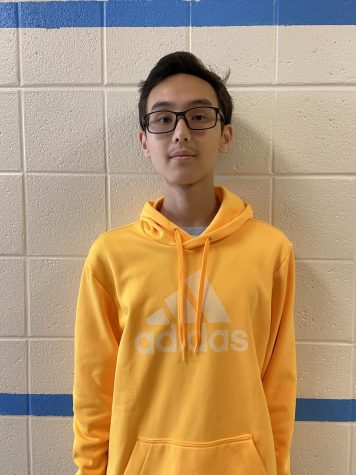At 7:30 a.m., I make my way into Whitman, waving goodbye to my mom as she pulls out of the carpool lane. My routine every day is the same. I greet my friends, go over last-minute preparations for whatever quiz I have that day and make one final stop. Instead of going to my first period, I take a left and enter a different classroom — my dad’s.
He often has an iced coffee or donut waiting for me, and we chat for a few minutes, catching each other up on our plans for the day. As I leave my dad’s classroom, I notice a few stares and whispers from my peers, targeted at my appearance in his room.
I knew from a young age I would attend my dad’s school, and I was always eager for that day to finally arrive. Throughout childhood, I sat in the front row at every Whitman basketball game he coached and accompanied him to art shows, club nights and football games. Each year, I sat in the high school desks on “Bring Your Child to Work Day,” pretending I was a student who understood the lessons he taught.
In middle school, I became less enthusiastic about going where my dad worked, worried about what my peers would think. As my first day of high school approached, my nerves skyrocketed. I’ve always struggled with social anxiety and was apprehensive about seeing everyone again after the virtual year. However, I found comfort in knowing a familiar face waited for me.
When I was four, my parents divorced, so I mainly saw my dad on weekends and holidays. The two of us had always been extremely close, so the separation was especially difficult for me. Entering high school with him there allowed us to regain that closeness and develop an even stronger relationship. Still, I was wary of how I would be perceived.
My dad taught a majority of my close friends, which created an interesting dynamic in some of these friendships. In his car, we have to filter our conversations to ensure that he isn’t hearing anything that could create a bias against any of his students. I’m also unable to have sleepovers at his house during the school year or throw parties with my friends.
At first, I was frustrated with always having to remind my friends to watch their words, as I knew they probably didn’t have to with anyone else, but over time I’ve gotten used to it. However, the comments I received from peers were harder to sweep under the rug.
During my freshman year, when I took AP Government and Politics, the class my dad teaches, my classmates assumed that my success and interest in the class was solely because of my dad. Although I didn’t have him as my teacher, the fact that I took the course he taught led to others assuming I had unfair advantages.
This was especially true during preparations for my AP exam. People would constantly make remarks about how my dad could give me the answer key and that I would receive a five. I felt embarrassed admitting that I didn’t do well on the exam since I knew others’ expectations were high.
The reality is my dad didn’t help me any more than a tutor or other teacher would. He gave me practice questions and essay prompts, but that was the full extent of his aid. As a parent, he helped me develop a stronger work ethic and better strategies, but the grades I received were the result of my hard work.
Though I faced a few struggles because of his job, the positive aspects of it outweighed the negative. My dad has worked at Whitman for over 20 years, so I knew a large amount of the staff coming in. The familiar faces made me feel more comfortable during my first days of school.
After two years at Whitman, I’m no longer fazed by my dad’s presence. It’s given me the ability to turn to him during the most difficult parts of my freshman and sophomore years, and I’ve grown to cherish our mornings together. I’m extremely grateful for how strong our bond has become.



